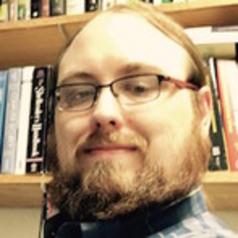
Robert Olson
Senior Lecturer of Computing Security, Rochester Institute of Technology
I am a specialist in web application security, mobile application security, and offensive cybersecurity. I have been teaching cybersecurity courses since 2011 and have taught courses in web application security, mobile application security, reverse engineering, malware development, exploit development, and penetration testing. I have spoken at and conducted professional trainings at numerous industry-focused cybersecurity conferences on topics in offensive cybersecurity and cybersecurity education. In addition to my education and experience teaching cybersecurity, I also hold the following certifications: Offensive Security Certified Professional (OSCP) and Certified Information Systems Security Professional (CISSP).
Less ![]()
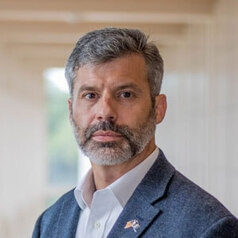
Robert Overstreet
Assistant Professor of Supply Chain Management, Iowa State University
Dr. Robert E. Overstreet is an Assistant Professor in Supply Chain Management. His role is to help advance supply chain management research and outreach in the Ivy College of Business at Iowa State University. Dr. Overstreet engages in industry-based research and enjoys building research and student relationships between academia and practice. In addition to his formal education, he holds multiple industry certifications (Certified Professional Logistician, Certified in Transportation and Logistics, and Lean Six Sigma Black Belt). Prior to entering academia, Dr. Overstreet served in the United States Air Force for nearly 28 years in leadership positions across several functional areas including logistics planning and analysis, transportation and vehicle management, as well as multi-national logistics operations. His combat deployments include one year near Mosul, Iraq where he advised a two-star Iraqi general on the care and provisioning of the 2nd and 3rd Iraqi Armies and six months near Herat, Afghanistan, where he served as the garrison commander of Camp Arena as well as senior logistician in Train Advise Assist Command–West. He also served as a sub-regional commander for Defense Logistics Agency–Energy Middle East in Bahrain where he was responsible for Department of Defense energy needs in Egypt, Iraq, Jordan, Kuwait, Lebanon, and Syria.
Less ![]()

Robert Park1
Judith and David Coffey Chair in Sustainable Agriculture, Plant Breeding Institute, University of Sydney
Professor Robert Park’s career began after he completed a PhD in Plant Pathology at La Trobe University in 1984. His first appointment was with the Queensland Department of Primary Industries, where he worked on the impact of wheat stripe rust in the north eastern Australian wheat belt. He was appointed as a Research Fellow at the University of Sydney’s Plant Breeding Institute in 1988, and has worked there since on rust diseases of cereals. Professor Park was awarded an Alexander von Humboldt research award in Germany in 1995, and a Fulbright Senior Scholarship to the USA in 2010. In recognition of his work in China, he was awarded the Friendship Award of China in 2009. This is the highest honour that the Chinese Government bestows on foreign experts who have made outstanding contributions to China.
Less ![]()
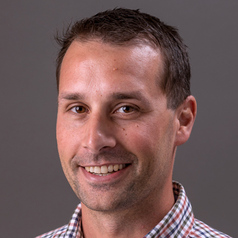
Robert Patalano
Lecturer of Biological and Biomedical Sciences, Bryant University
I am an archaeologist and biological anthropologist who specializes in early human paleoecology. I am currently a Lecturer in the Department of Biological and Biomedical Sciences, School of Health & Behavioral Sciences, Bryant University and a Research Affiliate in the isoTROPIC Research Group at the Max Planck Institute of Geoanthropology.
My research lies at the intersection of paleoanthropology, paleoecology, and geochemistry and combines traditional archaeological field methods with lipidomics and isotope studies to cast new, detailed light on relationships between environmental processes, cultural change, and human evolution. I have an extensive research portfolio and network which geographically spans eastern, southern, and western Africa, the Middle East, east and southeast Asia, and western Europe, and temporally covers the past two million years.
Much of my work investigates the role climatic and environmental variability had in shaping human origins and diversification. To do so, I use a suite of archaeological biomarkers to reconstruct past plant ecology and water availability (plant waxes), anthropogenic fire history (aromatic hydrocarbons), and population dynamics (faecal stanols and sterols). I am also an expert in multiple gas chromatography and mass spectrometry analytical techniques, including compound specific stable isotope ratio mass spectrometry.
Less ![]()
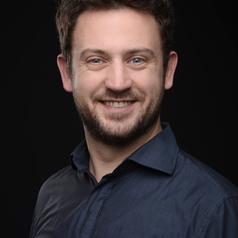
Robert Reinecke
Professor, Earth systems modelling, Johannes Gutenberg University of Mainz
My research focuses on global groundwater in the context of global hydrological modeling. I'm interested in surface water body to groundwater interaction, human impact on groundwater resources and the impact of climate change on the hydrological cycle.
Less ![]()
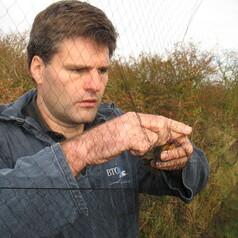
Robert Robinson
Associate Professor, Ornithology, University of East Anglia
Rob is one of the senior scientists at the British Trust for Ornithology and holds an affiliation with the University of East Anglia. He provides strategic leadership and co-ordination of research across BTO as a whole. This includes improving the support our scientists have to undertake analyses effectively and ensuring best use is made of the valuable data collected by volunteers both for academic research and to inform policy. He is interested in how changes in bird populations and distributions are determined by demography, particularly the combination of survival and productivity, and his research focusses on understanding how these processes operate, particularly within an applied context.
Less ![]()
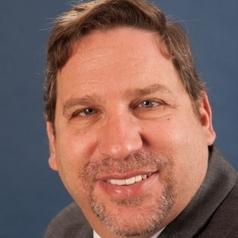
Robert Samuels
Continuing Lecturer in Writing, University of California, Santa Barbara
Bob Samuels' research interests include academic writing, social science writing, psychoanalysis, rhetoric, and media. He holds doctorates in Psychology and English, and he is the author of numerous books, most recently "Political Pathologies from The Sopranos to Succession," "Educating Inequality: Beyond the Political Myths of Higher Education and the Job Market," "The Politics of Writing Studies: Reinventing Our Universities from Below," and "Why Public Higher Education Should Be Free."
He blogs at Changing Universities.
Less ![]()
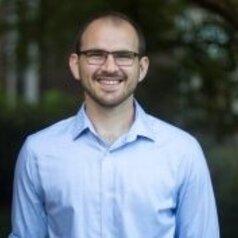
Robert Sears
Graduate Research Assistant in Plant Science, University of Tennessee
Rob is a PhD student in the Plant Sciences Department and a Graduate Research Assistant in the Stewart Biotechnology Lab at the University of Tennessee. The focus of his work is the creation of novel environmental sensors using biological sense-and-report systems, rather than mechanical. Through his work, Rob aims to create novel tools for the agricultural, biotechnological, and space industries.
Less ![]()

Robert Smith
Lecturer in International Relations, Coventry University
the theory and practice of statebuilding; contemporary Iraqi politics; counterinsurgency strategies in post-conflict environments; and British foreign policy during the Blair era. His PhD thesis looked at the US-led reconstruction of the Iraqi state following the invasion in 2003.
Ongoing research considers the development of the Iraqi state since regime change, with particular interest devoted to the Kurdistan Regional Government. He is currently writing with Mark Garnett and Simon Mabon (Lancaster University) a textbook on British Foreign Policy since 1945. He has taught International Relations at Lancaster University and the Royal Military Academy Sandhurst. He worked for the UK Foreign and Commonwealth Office within the Iraq Policy Unit in 2003-4, and recently operated as a political and security analyst based in Erbil, Kurdistan.
Research Areas:
Contemporary politics of the Middle East, especially Iraq
Kurdistan Regional Government and Iraqi Kurdish politics
Statebuilding and Nationbuilding
United States Foreign Policy
British Foreign Policy
Contemporary security issues and the “War on Terror;” Counterinsurgency
Human Rights.
Less ![]()
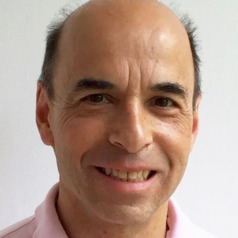
Robert Taub
Director of Music, The Arts Institute, University of Plymouth
As Music Director for the Arts Institute at University of Plymouth, Dr Robert Taub is excited about building and leading Musica Viva - a collaborative programme featuring fellow leading musicians as well as colleagues within the University that brings top tier concert performances and broad-based music educational events to communities of all ages in Devon and the South West.
From New York’s Carnegie Hall to Hong Kong’s Cultural Centre, Robert is acclaimed internationally as a concert pianist and recording artist. He has performed as guest soloist with the world’s leading orchestras and conductors, including the MET Orchestra in Carnegie Hall, the Boston Symphony Orchestra, BBC Philharmonic, The Philadelphia Orchestra, San Francisco Symphony, and many others.
He has also performed solo concerts on the Great Performers Series at New York’s Lincoln Center and other major series worldwide, and has been featured in international festivals, including the Saratoga Festival, the Lichfield Festival in England, San Francisco’s Midsummer Mozart Festival, Aspen Music Festival, and the Geneva International Summer Festival, among others. He has also initiated and led several concert series and festivals, including a highly touted series at the Institute for Advanced Study in Princeton, where is only predecessor as Artist-in-Residence was TS Eliot.
Following the conclusion of his highly celebrated New York series of Beethoven Piano Sonatas, Taub completed a sold-out Beethoven cycle in London at Hampton Court Palace. His recordings of the complete Beethoven Piano Sonatas have been praised worldwide for their insight, freshness, and emotional involvement. In addition to performing, Robert Taub is an eloquent spokesman for music, giving frequent engaging and informal lectures and pre-concert talks. His book Playing the Beethoven Piano Sonatas (Amadeus Press) is a standard for the Beethoven Sonata literature.
In addition, Taub prepared a new edition of the Beethoven Piano Sonatas for Schirmers Performance Editions, published by Hal Leonard Corporation. He has also performed several “historic pianoforte” concerts in the London area of Beethoven Sonatas, playing pianofortes – 1795 Longman and Broderip, 1816 Broadwood, and 1823 Streicher – specifically associated with Beethoven during his years of composition of particular Sonatas.
He has recorded the complete piano sonatas of Beethoven and Scriabin, as well as works of Babbitt, Schumann, and Liszt, several of which have been selected as “critic’s favourites” by Gramophone, Newsweek, The New York Times, and The Washington Post.
Taub has been in the vanguard of new music, having premiered piano concertos by Milton Babbitt (MET Orchestra) and Mel Powell (Los Angeles Philharmonic), and making the first recordings of the Persichetti Piano Concerto (Philadelphia Orchestra) and Sessions Piano Concerto. He has also premiered solo piano and chamber music works commissioned for him by Milton Babbitt, Jonathan Dawe, Jane O'Leary and other major composers.
During his first term at the Institute for Advanced Study, he initiated a concert series dedicated to the complete Beethoven Piano Sonatas. So popular were these concerts that he played each programme three times to sold-out houses; the series was featured in the US national press. In addition, Taub started a lunchtime series of informal discussions about music. In his subsequent two terms, he included chamber music in the concert series, bringing in world-renowned colleagues, with at least one work from every concert broadcast on NPR’s “Performance Today.” He also expanded the popular informal talks to include interviews with important young composers.
Robert Taub is a Phi Beta Kappa graduate of Princeton where he was a University Scholar. As a Danforth Fellow he completed his doctoral degree at The Juilliard School where he received the highest award in piano. Taub has served as Artist-in-Residence at Harvard University and at UC Davis prior to his time at the Institute for Advanced Study. He is currently Director of Music, The Arts Institute, University of Plymouth, where he initiated and directs the Musica Viva Concert Series.
Less ![]()
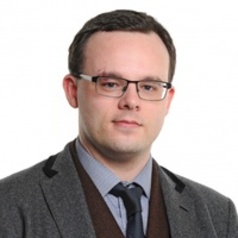
Robert Taylor
Robert is a Senior Lecturer in Public Law. He joined the School of Law as a lecturer in September 2014. Prior to this, Robert studied at Durham Law School, graduating with a LLB (Hons) in 2008, an MJur in 2011, and a PhD in 2014. In 2016, Robert became a Fellow of the Higher Education Academy (FHEA).
Robert is a leading researcher in UK Public Law and his work has been published in Public Law, the Modern Law Review and the Edinburgh Law Review. In 2020-21, Robert completed a Scottish Parliament Academic Fellowship on Brexit Statutory Instruments. On 18 May 2022 he gave evidence to the European Scrutiny Committee at the UK Parliament on the potential impact of the proposed Brexit Freedoms Bill on retained EU law in Scotland.
From 2021-222, Robert was a visiting scholar at Edinburgh Law School researching the constitutional foundations of the Union between England and Scotland.
Less ![]()
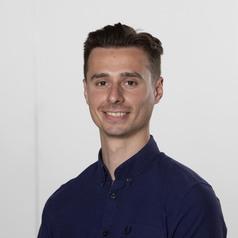
Robert Whelan
PhD Candidate, Centre for Inflammation Research, Institute for Regeneration and Repair, The University of Edinburgh
In 2021, Robert completed his MSc in Biology at Leiden University in the Netherlands. Specialising in Molecular Genetics and Biotechnology, he undertook two research projects within the Animal Sciences and Health/Bioinformatics and Genomics clusters, collaborating with research teams at Radboud University, Nijmegen and KU Leuven in Belgium. The first used the zebrafish as a model system to investigate the glucocorticoid receptor and innate immune cell migration during the inflammatory response. A later project focused on the taxonomic and functional profiling of zebrafish intestinal microbiome using metagenomic approaches and next-generation sequencing datasets. Today, Robert bridges these areas, combining his research interests in human disease, inflammation, and the gut microbiome and applying them to his present PhD project.
Inflammatory Bowel Diseases (IBD) are chronic immune-mediated conditions affecting the gastrointestinal tract. They are common, with a global prevalence approaching 20-30 million individuals by 2025.
The gut microbiome is a critical factor in the development of IBD and there are now several approaches aimed at manipulating the gut flora as therapy including faecal transplantation, probiotics and selective expansion of beneficial bacteria populations using spore technologies. However, we do not yet have the precision medicine tools to refine our understanding of the complex gut microbiome and its interconnection with IBD disease activity to improve the way we choose and tailor microbial-based treatments.
Emerging evidence suggests that inflammation may begin in the oral cavity and spread to the gut as pathobionts move between those body sites, hence there is a need to investigate the oral-gut microbiome axis in IBD.
Robert – alongside PI’s with bioinformatics, clinical and IBD expertise – aims to characterise the metagenome to determine if the complexities of the gut microbiome can be refined and reduced based on oral microbiome data to allow for a simple, quicker and more acceptable form of microbiome analysis that can be carried out in the widest IBD setting. Together, they will use strain-level metagenomics to look at the cross-talk between the oral and gut microbiota in IBD, and functional metagenomics to look at functional correlates with disease progression, outcome, and mucosal healing.
Less ![]()
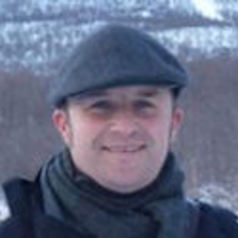
Robert Winstanley-Chesters
Robert is a Research Fellow at Australian National University, College of Asia and the Pacific and a Visiting Research Fellow in the School of Geography at the University of Leeds. He obtained his doctorate from Leeds’ with the Thesis “Ideology and the Production of Landscape in the Democratic People’s Republic of Korea”. Rowman and Littlefield’s Lexington Press published Robert’s monograph “Environment, Politics and Ideology in North Korea: Landscape as Political Project” in November 2014. Robert's new monograph "New Goddesses of Mt Paektu: Gender, Violence, Myth and Transformation in Korean Landscapes" co-authored with Victoria Ten will be published in winter 2016/2017 with Lexington Press. Robert is currently researching the Historical Geographies of Korean forestry, Colonial Mineralogical landscapes/inheritances, the place of topography within Pyongyang's charismatic narrative of the life of Kim Jong-suk and Animal/Creaturely Geographies of North Korea.
Less ![]()
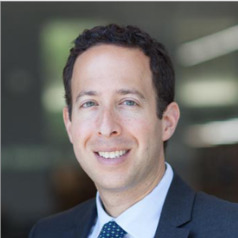
Robert Yablon
Associate Professor of Law, Co-Director of the State Democracy Research Initiative, University of Wisconsin-Madison
Robert Yablon is an Associate Professor of Law and Faculty Co-Director of the State Democracy Research Initiative. His research interests include political and election law, constitutional law, federal and state courts, and statutory interpretation. He teaches Civil Procedure, Federal Jurisdiction, and the Law of Democracy.
Professor Yablon's recent publications have appeared in the NYU Law Review, Northwestern University Law Review, Minnesota Law Review, and Iowa Law Review. In 2018, UW Law students honored Professor Yablon with the Classroom Teacher of the Year Award, and in 2019 he received a University Distinguished Teaching Award.
Professor Yablon received his bachelor's degree in economics and political science from the University of Wisconsin-Madison and his master's degree in social policy from the University of Oxford, where he was a Rhodes Scholar. He then earned his J.D. at Yale Law School, where he was an Articles Editor of the Yale Law Journal.
Following law school, Professor Yablon served as a law clerk for Judge William Fletcher of the U.S. Court of Appeals for the Ninth Circuit and for U.S. Supreme Court Justices Ruth Bader Ginsburg and Sonia Sotomayor. He also worked in private practice at Orrick, Herrington & Sutcliffe LLP in San Francisco and Washington, D.C. He has been the principal author of dozens of appellate and trial-level briefs, and has argued in a number of state and federal courts, including the U.S. Supreme Court.
Less ![]()
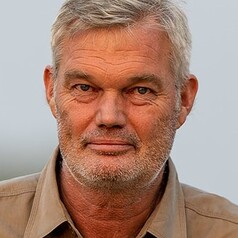
Robert A.R. Guldemond
Researcher, Conservation Ecology Research Unit, University of Pretoria
Less ![]()
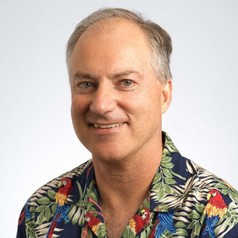
Robert Andrew Robergs
Associate Professor - Exercise Physiology, Queensland University of Technology
I completed a B.Ed. in Physical Education and Geography at the State College of Victoria-Rusden Campus (now Deakin University) in 1978. I commenced a Masters Preliminary year (Exercise Science) at the University of Western Australia in 1985, and then moved to the USA to complete a M.Ed. in Exercise and Sports Science and Cardiac Rehabilitation at Wake Forest University (North Carolina) in 1987. I completed a PhD in Human Bioenergetics at Ball State University in Indiana in 1990. I accepted an academic appointment at the University of New Mexico in 1990, where I eventually received tenure and was promoted to Professor. I left the USA for a return to Australia in 2011, where I worked at Charles Sturt University as a Research Professor from 2011-2016. I then commenced a research and teaching appointment at Queensland University of Technology in 2016.
Less ![]()
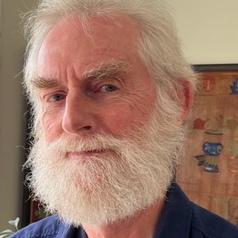
Robert B. Gibson
Professor of Environment, Resources and Sustainability, University of Waterloo
Robert B. Gibson is a professor in the School of Environment, Resources and Sustainability at the University of Waterloo, specializing in environmental policy issues and broader sustainability imperatives and applications. He has been involved with impact assessment law, policy and process issues since the mid 1970s.
Less ![]()
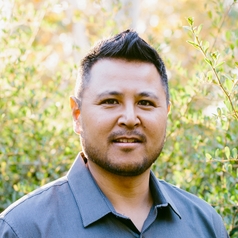
Robert Chao Romero
Associate Professor of Chicana/o and Central American Studies, University of California, Los Angeles
Robert Chao Romero received his Ph.D. from UCLA in Latin American history and his Juris Doctor from U.C. Berkeley. His research explores the little-known history of Asian-Latinos, as well as the role of Christianity in social justice movements in Latin America and among U.S. Latinas/os. Romero is the author of several books, including, “The Chinese in Mexico, 1882-1940” and “Brown Church: Five Centuries of Latina/o Social Justice, Theology, and Identity.” “The Chinese in Mexico” received the Latina/o Studies book award from the Latin American Studies Association and “Brown Church” received the InterVarsity Press Readers’ Choice Award for best academic title. Romero is also an attorney, ordained minister, and faith rooted community organizer.
Less ![]()
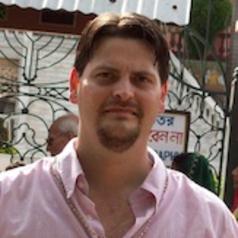
Robert J. Stephens
Principal Lecturer in Religion, Clemson University
Dr. Rob Stephens is a lifelong student with interests in Asian philosophies and the history of religions. He earned a B.A. cum laude in Religious Studies (with emphasis in biblical studies and early Christianity) from Missouri State University, an M.A. in Religious Studies (with emphasis in method and theory in Religious Studies) from the University of Kansas, and a Ph.D. in Religious Studies (in the History of Asian Religions and Cultures track) from the University of Iowa. Dr. Stephens joined the Clemson faculty in 2010 after holding teaching appointments at the University of Northern Iowa, the University of Alabama, Transylvania University, and Lindenwood University. He regularly offers classes such as Introduction to Religion, World Religions, Hinduism, Buddhism, and upper-level seminar courses on topics related to South Asia. Dr. Stephens has published several book chapters, peer-reviewed articles, and book reviews in The Journal of Asian Studies, The Journal of Church and State, Religious Studies Review, Nidan: An International Journal for Indian Studies, and The Journal of International and Global Studies. He has served as an editorial consultant for Oxford University Press, Routledge University Press, and The Asian Journal of Communication. In 2020, Dr. Stephens was selected to join Clemson University’s Fulbright-Hayes India team tasked with expanding educational awareness of and institutional partnerships with India at Clemson University and the state of South Carolina
Less ![]()
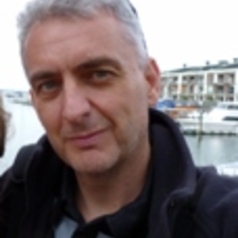
Robert John Young
My research has always been focused on understanding animal behaviour and how it can be used to improve animal conservation and animal welfare. Although, much of his research is applied some of it addresses fundamental questions about how animals communicate, for example. In recent times my captive research has focused on questions regarding “Fitness for the Ark”; that is, can captive (zoo) animals be used in reintroduction programmes and what training might they need to survive in the wild. In the field I have studied primates, maned wolves, fish and birds. I am particularly interested in the human wildlife interface in how sound pollution from mining activities affects wildlife. And in human-animal interactions in urban environments especially how such interactions can be managed. My research approach is both interdisciplinary and multidisciplinary as I believe strongly that this is how we will be able to answer the ‘big questions’. Thus, I collaborate widely with researchers that include engineers, geographers, mathematicians, psychologists and sport scientists.
I have always been fascinated by the natural world and the need to conserve it for future generations. Thus, I studied Biology BSc (Hons) at the University of Nottingham (graduated 1989), followed by a PhD at the University of Edinburgh (graduated 1993) in animal behaviour/animal welfare under the supervision of Prof. Alistair Lawrence. I then embarked on a wildlife career working as Research Coordinator for the Royal Zoological Society of Scotland (Edinburgh Zoo), where I was able to put into practice much of the theory I had gained during my university education. In 2001, I moved to Brazil, as a Professor of Animal Behaviour, to further fulfill my ambition to study wildlife. Here I developed a number of long term research projects on primate species (notably titi monkeys and marmosets), birds, carnivores and urban wildlife. At the beginning of 2013 I moved to the University of Salford to take-up a Chair in Wildlife Conservation.
Less ![]()
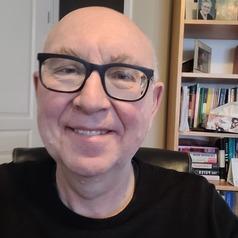
Robert L. Ascah
Research Fellow, The Parkland Institute, University of Alberta
Worked at Alberta Treasury and Alberta Treasury Branches for 25 years concentrating on public debt issuance, financial sector policy and economics. Director, Institute for Public Economics at University of Alberta Economics' department from 2009-13, Have contributed opinion pieces since 2010 in Edmonton Journal and Calgary Herald. I have been published in Alberta Views (April 2020) and CBC opinion piece on the Alberta budget. Since 2018 two co-authored and one sole-authored reports for the Parkland Institute.
Less ![]()
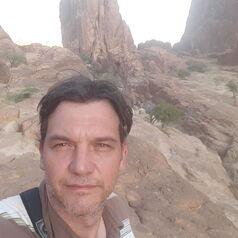
Robert Leslie Thomson
Associate Professor, FitzPatrick Institute of African Ornithology, University of Cape Town, University of Cape Town
Robert has a broad interest in bird ecology, but is especially interested in between-species interactions. He comes from Pretoria, and grew up birding and ringing in the bushveld areas. He did his undergraduate studies at the University of Pretoria, studying mixed species bird flocks for his BSc Hons. These studies led to him being a field assistant in northern Finland. This stint became his MSc thesis at the University of Oulu, which tested the heterospecific attraction hypothesis that migrant songbirds attract to resident songbirds during their habitat selection decisions. He continued with his PhD in Oulu, further investigating the positive associations in Boreal bird communities, but incorporating the interplay of negative, predation and competition, interactions. He defended his thesis in 2006, and moved to southern Finland to take up a post-doc position at the University of Turku investigating various aspects of raptors and their impact on songbird community structure.
During the avian influenza (AI) crises in 2007, Robert led AI surveillance efforts in Cambodia for the Wildlife Conservation Society, and assisted with surveillance work in Mongolia. He then returned to Finland where he held a series of research fellowships investigating avian habitat selection decisions in the face of ‘enemies’ and the life history of endangered wader populations in the Bothnian bay.
Robert has also initiated three new research projects in the last few years that use unique study systems to answer questions of interest. He has been working on:
1) The importance of Sociable Weaver colonies in the Kalahari and their use by other avian species and other taxa. Investigating how these communities and their interactions change at weaver nests across aridity gradients. This work has also focused on the African Pygmy Falcon, an obligate user of these weaver nests, and their life history and interactions with their weaver hosts.
2) Understanding front-line defences in brood parasite – host interactions. For these studies he is using the redstart-common cuckoo system, unique because the redstart is the only known cavity nesting host of the common cuckoo, that present interesting challenges for the cuckoo.
3) An applied project to understand the role of farmers in vulture conservation in southern Africa. Taking interdisciplinary approaches to understand the factors that affect the use of poison by farmers and human-wildlife conflicts. And focusing on the role that supplementary feeding efforts by farmers can play, and assessing the services that vultures may provide in terms of carcass.
Less ![]()
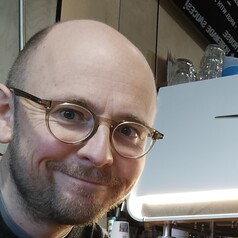
Robert P. Jackson
Senior Lecturer in Political Thought, Manchester Metropolitan University
I am an Edward W. Said Fellow 2024 at the Heyman Center for the Humanities (Columbia University, NY). I am currently developing a book project on Said’s conception of ‘critical consciousness’ and its relationship with the thought of Antonio Gramsci. My areas of specialism are political theory and the history of modern political thought. My research addresses issues at the intersection of critical and postcolonial thought, in particular re-examining the role of intellectuals in modern society.
I have forthcoming articles in Interventions and Notebooks, and I am co-editor of Revisiting Gramsci’s Notebooks (Brill, 2020), a rich collection of innovative scholarship on Gramsci (also in paperback). I have published work in TOPOI, Theory and Event, Thesis Eleven, Gramsciana, Hegel Bulletin, Journal for Critical Education Policy Studies, Science and Society, and the International Gramsci Journal.
Before joining Manchester Metropolitan in 2014, I lectured in European and International Studies at King’s College London, where I completed my PhD in 2013.
I co-created the Critical Theory in Hard Times network, which organised workshops on Decolonising Critical Thought (2021) and Racial Capitalism and Anti-Racist Futures (2023).
Less ![]()
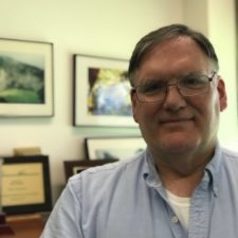
Robert S. Brown
Adjunct Professor, Faculty of Education and in Critical Disability Studies, York University, Canada
Dr. Robert Brown has worked in applied research for over thirty-five years, in media research, market research, and education research. After a master’s in Communication Studies at the University of Windsor, he completed his doctorate in education at the University of Toronto. A Past President of the Association of Educational Researchers of Ontario, Robert retired from the Toronto District School Board's Research and Development department in August. He is Adjunct Professor at York University, in the Faculty of Education and in Critical Disability Studies. His areas of study include the time structures of schools, postsecondary student pathways; longitudinal tracking studies; and socio-economic and demographic patterns. He has authored or co-authored works in a number of fields including education, psychology, sociology, medicine, and economics.
Less ![]()
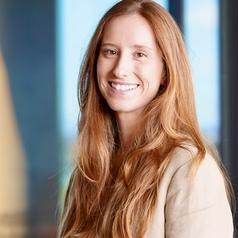
Roberta Anversa
The University of Melbourne
Dr Roberta Anversa is a Research Associate at The Florey Institute and her research explores novel treatments for alcohol and nicotine addiction. Roberta has an undergraduate degree with Honors in Biotechnology and a PhD in Neuroscience from the University of Melbourne.
Less ![]()
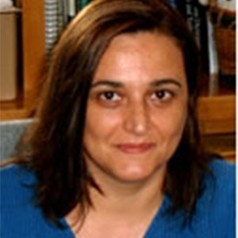
Roberta Attanasio
Associate Professor of Biology, Georgia State University, Georgia State University
Research scientist in immunology and environmental toxicology; instructor of immunology, environmental health, and sustainability-related courses; instructor of women leadership courses, with emphasis on leadership in the sciences.
Less ![]()
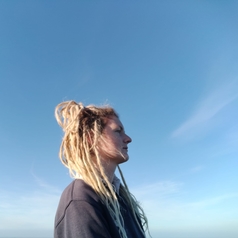
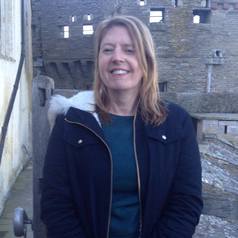
Roberta Garrett
Senior Lecturer in Literature and Cultural Studies, University of East London
Dr Roberta Garrett is a Senior Lecturer in the School of Arts and Creative Industries at the University of East London. She is author of Post-Modern Chick-Flicks: The Return of the Woman's Film (2008) co-editor of We Need to Talk About Family: Essays in Neoliberalism, The Family and Popular Culture (2016) and author of Writing the Modern Family: Contemporary Literature, Motherhood and Neoliberalism (2021). She is currently co-editing a book of essays on Rachel Cusk. She has also published numerous articles and book chapters on contemporary film and literature and has a forthcoming article in Feminist Media Studies on domestic abuse on screen.
Less ![]()
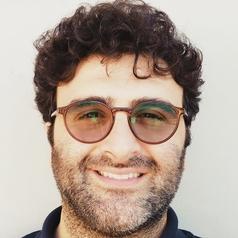
Roberto Nisticò
Associate Professor of Economics, University of Naples Federico II
Roberto Nisticò is Associate Professor of Economics at the University of Naples Federico II and is also affiliated with CSEF and IZA. He holds a PhD in Economics from the University of Essex. His research focuses on Development Economics, Labor Economics and Political Economics.
Less ![]()
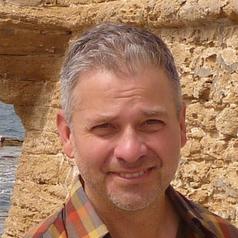
Roberto J. González
Professor of Anthropology, San José State University
Roberto J. González is a cultural anthropologist who specializes in the anthropology of science and technology, militarization, environmental anthropology, and the history of anthropological thought. He has written several books including "Zapotec Science: Farming and Food in the Northern Sierra of Oaxaca" (2001), "American Counterinsurgency: Human Science and the Human Terrain" (2009), "Militarizing Culture: Essays on the Warfare State" (2010), "Militarization: A Reader" (co-edited, 2019), "Connected: How a Mexican Village Built Its Own Cell Phone Network" (2020), and "War Virtually: The Quest to Automate Conflict, Militarize Date, and Predict the Future" (2022).
Less ![]()
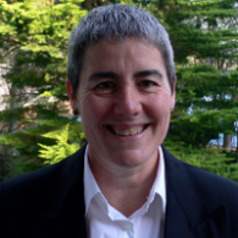
Robin Banks
PhD Candidate and University Associate, University of Tasmania
I am a human rights lawyer with particular expertise in discrimination law. I have practised as a lawyer and held the statutory appointment of Anti Discrimination Commissioner under the Anti-Discrimination Act 1998 (Tas) (2010-17). I am currently a PhD candidate at the University of Tasmania researching potential reforms to discrimination laws drawing from social science research on discrimination, prejudice and stigma.
Less ![]()
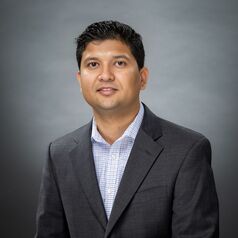
Robin Chataut
Assistant Professor of Cybersecurity and Computer Science, Quinnipiac University
Dr. Robin Chataut is an assistant professor of Cybersecurity and Computer Science at the School of Computing and Engineering at Quinnipiac University. He earned his Ph.D. in Computer Science and Engineering from the University of North Texas and his undergraduate degree in Electronics and Communication Engineering from Tribhuvan University. Prior to his academic career, he worked in the software industry as a software developer.
Dr. Chataut's research interests lie in the areas of wireless communication, cybersecurity, AI, machine learning, and advanced technologies such as 5G, Beyond 5G, and 6G networks. His expertise also spans network security, smart cities, vehicular networks, and the Internet of Things. His significant contributions to the field are evidenced by his design, implementation, and optimization of complex algorithms and systems architecture for next-generation networks. He has authored several research articles over the past few years and has been a dynamic presence at numerous international conferences and seminars.
Beyond his research and academic commitments, Dr. Robin remains an active participant in the academic community. He serves in multiple international scientific journals and conferences, contributing significantly to the advancement of his fields of expertise.
Less ![]()
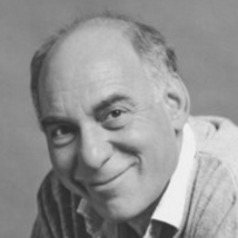
Robin Cohen
Robin Cohen is Professor Emeritus of Development Studies, University of Oxford. Prior to his Oxford appointment in 2007, he was Professor of Sociology at the University of Warwick. He also held appointments at the Universities of Ibadan, Birmingham, Cape Town and the West Indies and short-term positions at Stanford, Toronto and Berkeley. He was editor of the Routledge series on Global diasporas and of the Cambridge survey of world migration.
His books on migration include The new helots: migrants in the international division of labour (1987, 1993, 2003), Contested domains: debates in international labour studies (1991), Frontiers of identity (1994), Global diasporas: an introduction (1997, rev. 2008), Migration and its enemies (2006) and Encountering difference (2016). He directed the International Migration Institute, part of the Oxford Martin School (2009–11), and was principal investigator on the Oxford Diasporas Programme, covering 11 projects, funded by the Leverhulme Trust (2011–5).
Less ![]()

Robin Dodson
Adjunct Assistant Professor of Environmental Health, Boston University
Robin Dodson is a research scientist with expertise in exposure assessment, particularly in the indoor environment. Her research focuses on three main areas: development of novel exposure measurements for epidemiological and community-based studies, analysis of environmental exposure data with a particular emphasis on semi-volatile organic compounds such as phthalates and flame retardant chemicals, and intervention studies aimed at reducing chemical exposures. Dr. Dodson oversees the Institute’s consumer product exposure research. She was the lead author on a landmark peer-reviewed study on endocrine disrupting and asthma-associated chemicals in more than 200 consumer products. As part of the Centers for Disease Control’s Green Housing study, she is currently investigating exposure in children with asthma to chemicals in consumer products and building materials. She leads Silent Spring’s Healthy Green Campus project, a research effort aimed at making health an integral part of sustainability practices on college campuses.
Dr. Dodson completed her doctorate in environmental health at the Harvard T.H. Chan School of Public Health. For her graduate work, she designed and conducted an exposure study in the Boston area focusing on residential and personal exposures to volatile organic compounds. She developed models to evaluate the transport of pollutants in the indoor environment and determine the contribution of various microenvironments to personal exposures. In addition, she evaluated methods for using existing residential exposure data to model residential exposures in the general population. As a graduate student, she contributed to two studies focusing on asthma in lower-socioeconomic-status urban residences in the Boston area.
Dr. Dodson is an adjunct assistant professor of environmental health at Boston University School of Public Health and also holds an appointment as a visiting scientist at Harvard T.H. Chan School of Public Health. She previously taught biostatistics at Brandeis University for eight years. Prior to her graduate work, Dr. Dodson worked at Menzie-Cura and Associates, where she contributed to both human and ecological risk assessments. In addition to her doctorate, Dr. Dodson holds a bachelor’s in environmental studies from Bates College, where she was inducted into the Phi Beta Kappa Academic Honor Society, and a master’s in environmental science and risk management from the Harvard T.H. Chan School of Public Health.
Dr. Dodson’s interest in studying air pollution began in sixth grade when she first learned about the depleting effects of chlorofluorocarbons on the ozone layer. Today, she has dedicated her career to improving public health through her applied research, and hopes to inspire a new generation of young girls to become “future scientists.”
Less ![]()
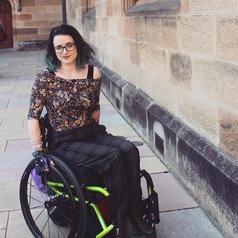
Robin Eames
History PhD candidate, University of Sydney
Robin Eames is a queercrip historian, poet and PhD candidate living on Gadigal land. They are currently researching 19th century trans history, criminalisation, and medicalisation at the University of Sydney. Their work is currently on display in the State Library of NSW's Amaze Gallery, as part of the Pride (R)Evolution exhibition.
Less ![]()
- Market Data





















